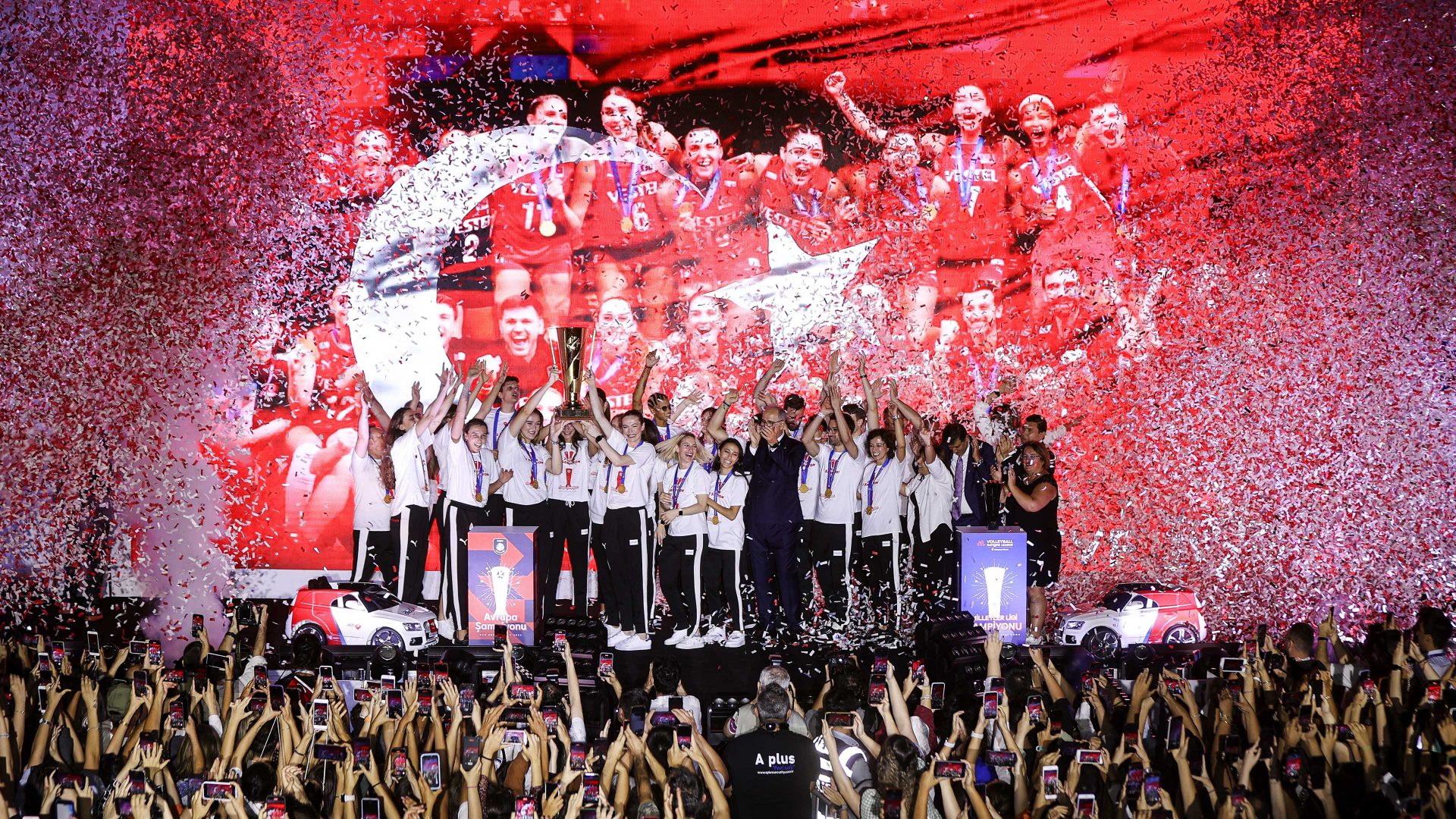Standing in the crowd at Kadıköy’s Kalamış Park, there was an air of anticipation. People around me unfolded their camping chairs, settled in with a drink and struck up spirited, hopeful conversations. The occasion? The final of the European Volleyball Championship, where Turkey was poised to face off against Serbia in a monumental showdown. A colossal screen had been set up in the park, and in many other public spaces all across the country. This was a national event.
As the match began, tension gripped the audience. Every spike, block and rally set off waves of excitement. It had been nearly two months since the Sultans of the Net had triumphed in the Women’s Nations League in Arlington, Texas – could they secure the European Championship as well? During crucial points, spectators jumped from their seats, erupting in cheers as the Turkish players scored.
In the climactic fifth set, my friend turned and asked, “Is this really going to happen? Are we going to win for real?” And indeed, Turkey emerged victorious against the immensely talented Serbian team. The Serbs were brilliant. Someone said: “If we were to lose to them, I wouldn’t even be sad.” When victory came, the place erupted in a forest of Turkish flags.
Turkey’s women’s volleyball team is not just a group of athletes – they embody so much more. In recent years, they have come to represent the ongoing societal tension within Turkey between secularists and Islamist conservatives, a debate that transcends sport, politics, and culture. On one side stood the national team, representing our nation on the world stage, while on the other, a handful of radical ultraconservative social media users criticised the team for their “revealing” shorts, dyed hair, or sponsorship from a menstrual hygiene products company.
Ebrar Karakurt, with her exceptional talent and unapologetic confidence, has become a focal point of this debate. Two years earlier, she had posted a mirror selfie with her girlfriend on Instagram, sparking controversy and leading to a wave of homophobic abuse on social media. Some regarded her as a symbol of progress, championing LGBT rights and female empowerment. Others saw her sexuality as a challenge to traditional values. An Islamist newspaper even labelled her the “shame of the nation”.
A few days before the final match, her response to a conservative social media user went viral. A Twitter user named Abdulhamid had told her, “As the Muslim Turkish nation, we continue to put up with you,” to which she retorted, “Cut the crap, Abdulhamid.” I witnessed many of my friends sharing that phrase following the victory. As I watched her unleash her powerful serves and fearless spikes, it was evident that she had gone beyond this societal division. She was simply an athlete, wholeheartedly dedicating herself to her country in the best way she knew how.
Even Recep Tayyip Erdoğan came to Karakurt’s defence. “We see those who attempt to turn areas that should unite us all, such as culture, art, and sports, into tools of disruption,” the president said. “We must respect the right of all individuals to live, express themselves, and make their own choices.”
Kadıköy, the district housing the park, is renowned for its left-leaning demographics and is considered a progressive hub for arts, entertainment and alternative lifestyles. It is also home to the Fenerbahçe sports club, most famous for its football team, but which takes in many other sports including volleyball. When I asked a man sporting a yellow and navy blue Fenerbahçe shirt about the team, he chuckled and expressed being “double proud” that the captain of the Turkish team, Eda Erdem Dündar, and the star player, Melissa Vargas, both played for the Fenerbahçe women’s volleyball club.
Vargas, who won the “most valuable player” award in the tournament, was born in Cuba and earned Turkish citizenship in 2021, when Erdoğan personally presented her with her national ID card. Her incredible leaps earned her the nickname “Vargas Airlines”.
Beyond the internal Turkish political dynamics of this championship, there was also a global dimension. A famous Turkish meme once said: “There are three things that boost our (Turkey’s) international prestige: Tarkan’s music, Istanbul’s famous street cats, and the Turkish women’s national volleyball team.” Considering that the team’s victory made headlines in numerous international publications, perhaps the meme had been on to something.
The team’s captain spoke proudly about winning the tournament on the 100th anniversary of the founding of the Turkish Republic. That remark was significant in itself. The emphasis on the republic once more raises the issue of the power struggle between two major factions in Turkish politics. It is the secularists who value the legacy of the modern republic founded by Mustafa Kemal Atatürk in 1923. Religious conservatives are less keen.



